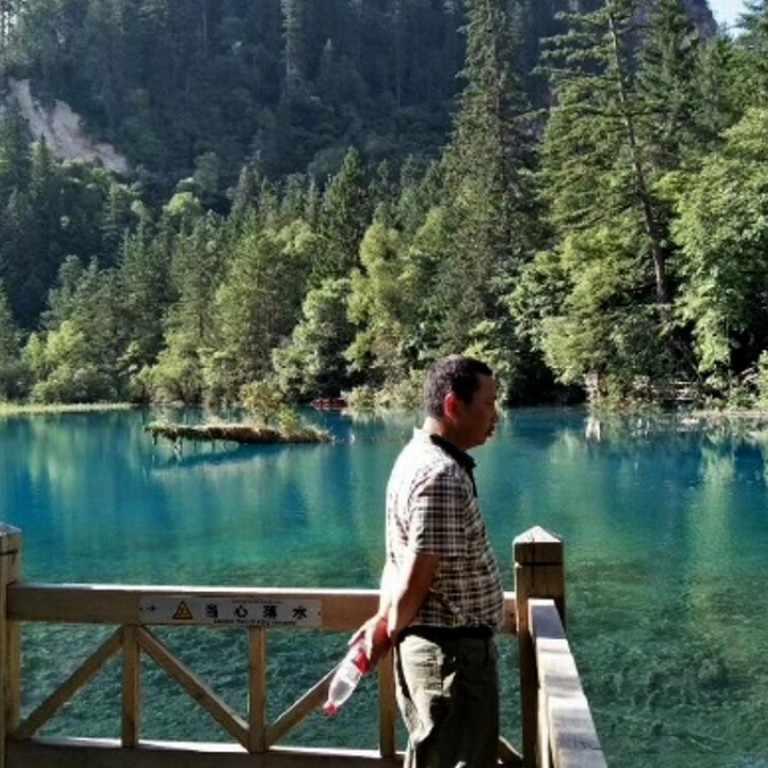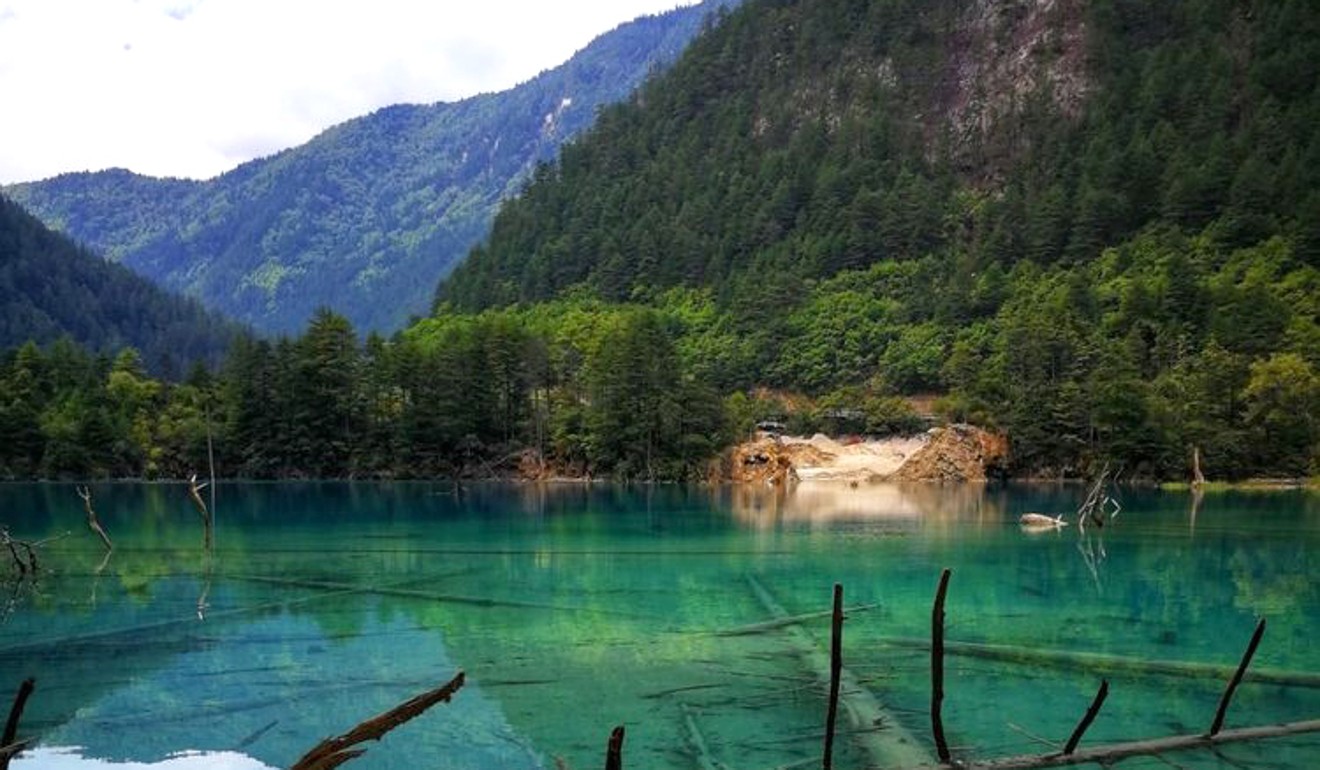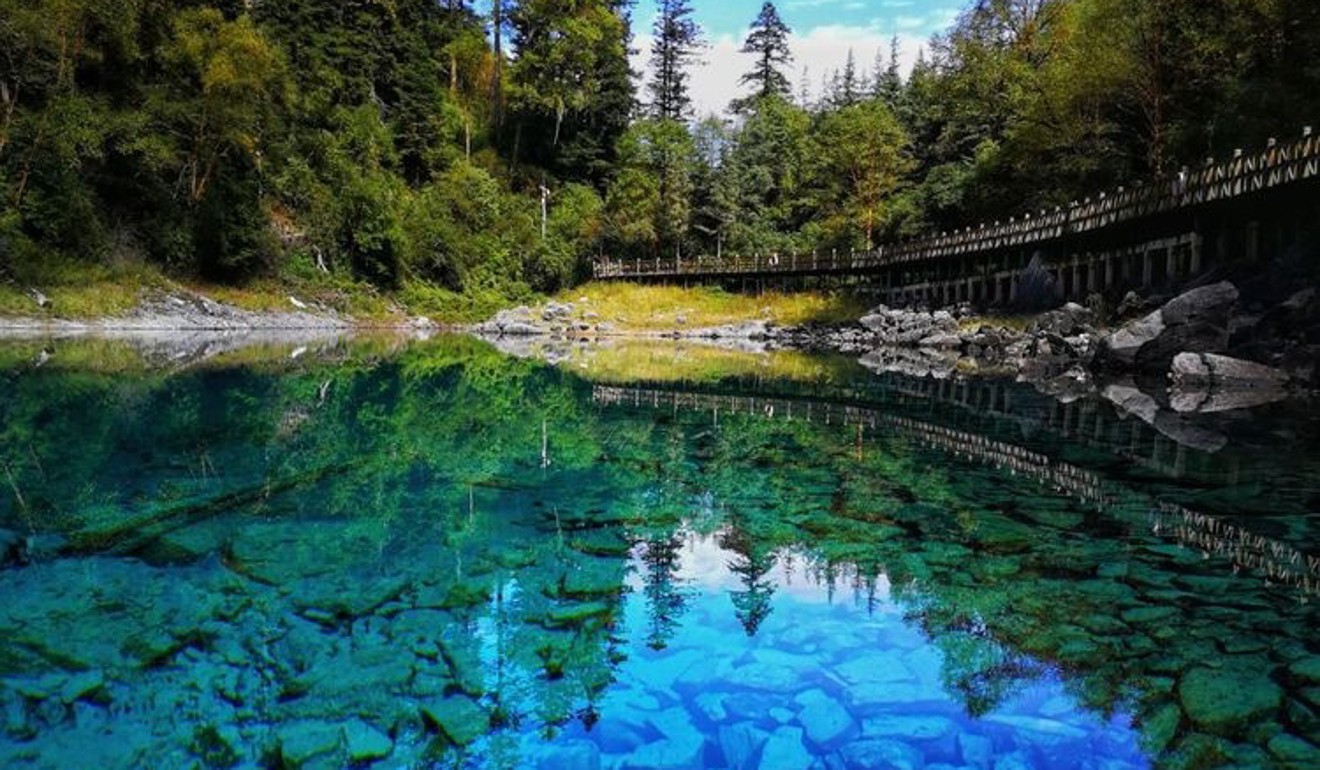
Grim reality sets in as ‘Golden Week’ tourists steer clear of quake-hit Unesco World Heritage Site Jiuzhaigou
Some restaurant and hotel operators are considering cutting their losses and leaving – if they haven’t already
This time last year, Zhuoma was busy preparing yak meat, fried potatoes and butter tea for all the holidaymakers wanting to sample some hearty Tibetan fare at her restaurant near the Jiuzhaigou National Park.
But after a magnitude 7 earthquake struck the mountainous area in Sichuan province in early August, it has been the quietest “Golden Week” holiday she has seen in a decade.
So much so that Zhuoma – who has run the A Bu Lu Zi Tibetan Restaurant for 13 years – decided to take a break herself and go to Yunnan province with her family.
“It’s just too quiet down here,” Zhuoma said.
Her trip is one of an estimated 701 million being made across the country during the extended National Day break from October 1 to 8. Tourism revenues for the period were expected to rise 12.2 per cent from last year to hit some 590 billion yuan (US$88.68 billion).
But for those who usually make their living from tourists in Jiuzhaigou, the holiday is a reminder of their long road to recovery. The national park – a Unesco World Heritage Site famous for its otherworldly beauty – has been closed to the public since the earthquake, which claimed 25 lives and injured 525 people.

Once one of the most popular tourist attractions on the mainland, it is expected to be closed for the next one to three years and it will have to be re-evaluated by Unesco, Xinhua reported. It was still undergoing risk assessment and repairs, with full restoration work yet to begin, the report said.
In the tourist town of Zhangzha, near the epicentre of the quake, most locals had already returned to their homes by the end of September, Zhuoma said, and they continued to endure aftershocks.
Some grocery stores were operating, although many locals were surviving by growing their own vegetables.
Known for its waterfalls and iridescent lakes that shimmer against a backdrop of deciduous forests and snow-capped mountains, the landscape of the famous park has also changed.
Sparkling Lake, for example, one of its most popular locations for taking selfies and holiday snaps, is now significantly smaller.
Some are concerned about whether tourism in the area will recover.
“I’m worried about when our business will improve,” Zhuoma said. “No one knows when the park will open again. For now, I’ll stay put. But I’m not ruling out the possibility that I might have to go somewhere else to start a business.”

Many hotel operators have already abandoned their businesses and moved on.
Wang Peijiang decided to cut his losses and close his Jiuzhai Fairy Tale Boutique Hotel, which is about 15 minutes’ walk from the national park. Instead he has opened a new hotel near Mount Emei, another popular tourist attraction in Sichuan.
At the Jiuzhai Sea View Hotel meanwhile, one employee who stayed on after the earthquake said he had been transferred to Guangzhou about a month ago because the hotel owner decided to temporarily close up.
Devoid of tourists and with the rebuilding effort barely begun, Jiuzhaigou is a starkly different place from a year ago. Then, over 209,000 tourists visited during the National Day holiday – with a daily peak of more than 40,000.
That amounts to a loss of about 46 million yuan on national park ticket revenues alone for that period, based on the entry price of 220 yuan.
In fact, the service industry accounts for about two-thirds of the economy in Jiuzhaigou, according to the county’s economic yearbook. Last year, more than 7.2 million people visited the county – with 5 million of them going to the park – generating over 9 billion yuan in revenue.
Some 13,000 people lost their jobs because of the earthquake, Xinhua reported.
After the earthquake, Wang provided free accommodation and food at his hotel for soldiers who were there for the rescue operation, as well as for media covering the story.
“But now they’re gone, and I need to move on,” he said.

